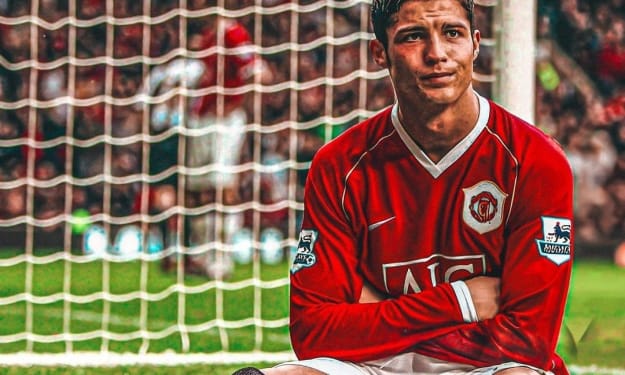7 Tips To Being A Successful Goalkeeper
Lessons To Take With You Through Life!

In kindergarten, Mom and Dad decided to enroll me in a soccer club. I was enlisted to the “Bluebirds”, and was essentially, the team cheerleader. We would rotate positions to gain experience. At such a young age, the coaches wanted us to learn every position. When it was my time in the goal box, I could be found doing cartwheels, and cheering. What was I was cheering for? At the time, I had no clue. But soccer sure was fun!
As I grew on those white-lined green, grassy fields, so did my competitiveness and understanding of my responsibilities. I had learned the various positions, but had fallen in love with being the goalkeeper. I played both club, and high school soccer. There was a lot that I learned as a keeper, but these are seven lessons that helped me in other areas of my life!
1. Be early to both practice and games if you are the goalkeeper.
Yes, your teammates may need to show up thirty to forty-five minutes before a game to warm up the legs, but as a goalkeeper, there is so much more! Your legs are not the only thing you need to get ready! Goalies need a core warmup. My coach had me warming up another thirty minutes earlier than the rest of the team, and for good reason! A head-to-toe body-readiness check was absolutely necessary. As a keeper, your diving, sliding, gripping, and moving skills need to be top play! Arriving early and warming up is essential. You need to be in tune with yourself and know your own boundaries.
Learn this behavior earlier in life if at all possible! Being early to games, makes it easier to arrive to other appointments in life in the same manner. Establishing these patterns and positive habits in sports, can more easily cross over to other areas of your life. Individuals will be able to count on you to for meetings and engagements. This helps others to establish a trusting foundation with you; knowing you will keep to a schedule. Showing up late to events, unless communicated appropriately, can make it seem that you are not very invested.
2. As a goalkeeper, you should listen to your body and self.
Often goalkeepers risk serious injury. We risk getting down among the cleats. There is increased risk for broken or sprained fingers, head injuries, and let me tell you from experience, a foot to the face is not any fun. Because of the increased risks taken, there are also risks of ignoring injuries for a want to continue playing, or feeling burnout and attempting to ignore it.
Take close notice of your body throughout your gaming career and your life! Learn to become sensitive to meeting your own needs. When tired, take a break. Listen to what your body is trying to tell you, and rest. When hungry, eat something and try to make it healthy. What are you trying to communicate to yourself? Understanding your own mental, emotional, and physical condition will help you avoid exhaustion, minimize stressors, avoid burn-out, and injuries in almost every part of your daily routines. Experiencing these in one area of life, more often than not, manifests in other areas of your life.
3. Communication is elemental to team success!
It’s a neat and unique position to be at the end of the field; looking on at the battle for the soccer ball between variously positioned players. One of the individuals in this battle, is your best friend, and that is your sweeper. Your sweeper is able to move that ball to any side of the field, and can work that ball between you and your fullbacks. But when they are turned towards you, and in protection mode of that ball, they cannot see what’s behind them; you can. You, as the keeper, not just for your sweeper, but for any player, become “their eyes in the back of their head” and you can give them a warning or “heads up”! As a keeper, it is part of your responsibility to inform the rest of your team what is actively going on, once you step on that field. Communication is integral to team success!
Work, depending your situation, can be much the same way. Learning to communicate and see the “bigger picture” has helped work teams become successful in their “goals” and achievements. Learn to communicate appropriately. Surprisingly, others become more readily willing to speak up. Increased, positive communication leads to more chances for success in any relationships you experience.
4. Learn the field you’re playing on.
No two fields are ever the same. Some are smooth with beautiful grass and always kept. Other fields may have dirt grooves, hardened flat spots where grass will not grow. You will never know, unless you walk the field! As a goalkeeper, when punting, passing or tossing the ball to one of your players, you need to be aware of the potential bounces, rolls, hardened and sluggish areas, all which influence where that ball will go. Knowing the field gives you a chance to communicate with your team so you can all be better prepared together.
Work can be much the same way. There is always going to be bumps, snags, sluggish struggles, and days that are more difficult. When going to work prepared, much like walking the field, it can help both you and your teammates readjust and choose how to better complete and deliver assigned work. Go back to listening to your body. Take time to listen to your teammates as well. Most of, communicate! With preparedness and awareness, you will minimize potential traps or errors for yourself and others around you.
5. As a goalkeeper, be prepared for any sort of weather!
When it comes to weather, depending your location, it can be bright and sunny consistently like Southern California and the game is under a blue sky. Or maybe you encounter a lot of rain in some place like Portland, Oregon, and on good days you play in mud and sludge. Maybe you play soccer in Albuquerque, New Mexico and if you don’t like the weather, just wait fifteen minutes for it to change! On the plains of Oklahoma, if you kick the ball too hard, there’s a good chance the wind will carry it to the next playing field, is certainly to be a challenge. Wherever you play, weather is always a factor in how the ball will respond on the field. In turn, shifting how other players respond. This affects your functioning as a keeper.
The proverbial weather can hit at anytime in any office. The unexpected storm from a crisis, the beautiful days when everything runs smooth and “sunny”, and the foggy moments when you just cannot figure out or see what is happening are common. All kinds of weather can obstruct your views, make work go slower or faster, and influence how your peers engage with you and others in the environment. If you know what the potential weather is, and prepare for it in advance, when it does arrive, you and your teammates will manage the situation with more proficiency and success!
6. Learn to trust your teammates.
Teammates, for some, can be a complicated dynamic. Do they show up on time for practice? Do your teammates give it their all? Do they easily let outside issues influence them? Are there ball-hogs? Or do your teammate share for mutual success? Do you have a “hot-headed” teammate? Or maybe one that needs to learn to speak up more and practice better communication? Whatever an individual’s weaknesses, there are also strengths. As a goalkeeper, you want to get to know your teammates strengths and weaknesses as it helps better prepare you in how they will handle situations on the field. A ball-hog will have a tendency to run the field, whereas someone more “mousy” with communication struggles may pass the ball without warning. If you have a teammate strong in sharing and communication, you can learn to trust they will not blindly follow through on a pass, and will pass for the benefit of scoring as a team. You must learn to trust your teammates being aware of their own weaknesses, and believe they will play to the team’s strengths.
The workforce is no different. There will be that individual on your team that boasts and cannot keep quiet (ball-hog). There will be the individual that struggles with communication and you don’t know what is going on with them (mousy). There will be the individual who seems to completely have it all together (have these five elements figured out and executed regularly), and many more unique and diverse characters. Whatever the strengths or weaknesses, working in the same environment, you want to hopefully trust that everyone will contribute for the success of that company. You want to trust that everyone knows their positions and responsibilities and how to share the workload accordingly. Make sure your teammates can trust and count on you, in turn you have a better chance of being able to trust them.
7. As a goalkeeper, you are not perfect. Expect a few well-placed kicks to score on you.
No one is perfect. Not your teammates, not you, not anyone on the field is perfect. Your forwards will miss the goals. Your halfbacks will be bettered by another player. Your fullbacks and sweeper will let the ball past them heading towards you like a freight train. It happens! There will be individuals that will score on you.
This is just the way life is! If we are not perfect on the playing field, we cannot expect perfection in the workforce or anywhere else in our lives. Learn from the mistakes made, and accept the opportunities for growth. Apply the lessons learned in weakness, to build your strengths.
While on the playing field, or in the workforce, it is essential as a goalkeeper to be on top of your game! Know your teammates and understand who they are individually, as well as collectively. Learn how they interact with the field, each other, and you. If you learn to apply these seven tips to any team building, you will surely be on your way to becoming a successful teamplayer and goalkeeper!
About the Creator
Charleen Richey
Freelance/ghostwriter. Began writing in the single digits and was blessed with a mom who obtained a degree and career in English. My family is my motivation and inspiration to follow my passion! I look forward to sharing my work with you!






Comments
There are no comments for this story
Be the first to respond and start the conversation.